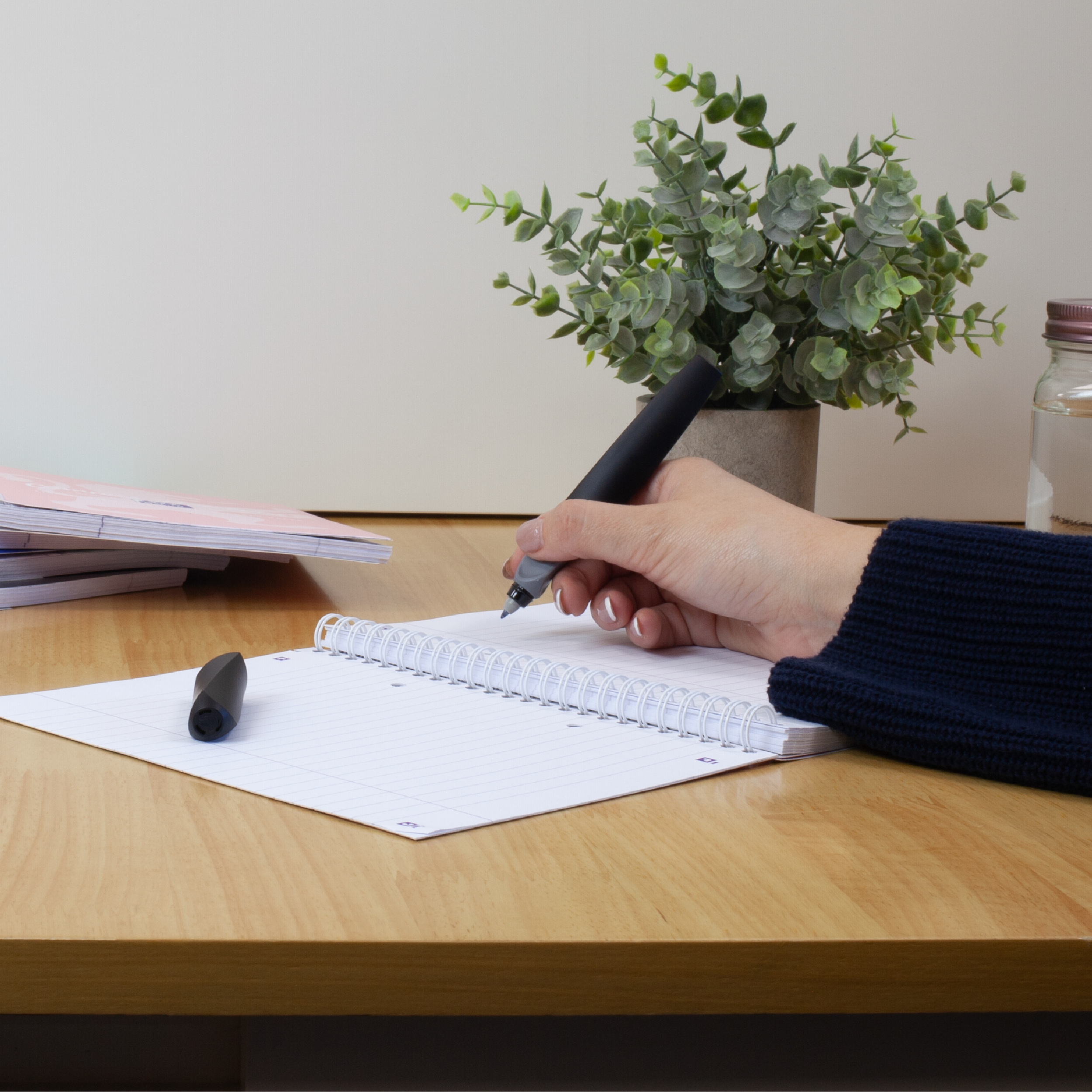It feels like we’ve only just said goodbye to September, but with mock exams right around the corner, we’re back to talk about revision! More specifically, we want to highlight the importance of handwriting when revising. It may sound a little boring, but handwriting is an incredibly powerful yet underestimated tool.
Not ready to give up your laptop? Let us try to convince you:
1. Boosts Memory and Retention
There are many studies which prove that writing your notes by hand directly links to the memory and retention areas of your brain. Handwriting your class and revision notes ensures that you are actively processing your learnings, not just passively typing or reading. When you’re trying to take in a lot of information, writing your notes by hand forces you to digest the knowledge, break it down into more manageable chunks, and learn it in a way that is more personal to you.
Top Tip: Use the bullet points system to help you keep up with writing in class and to ensure you have easily digestible notes for later revision.

2. Slowing Learning Down
We mean this in a good way! Typing your notes may be faster and more efficient in the short term but writing by hand means you’ll have time to absorb the topic you are learning. It’s not uncommon for people to gloss over concepts when they are typing notes in class. Whilst it can be helpful to have typed notes in some cases, handwriting is the best way to go when you need to focus on complicated theories.
A slower pace can even be helpful in specific subject areas. For example, if you find you struggle keeping scientific equations in your head, making space to physically write them down will help you deepen your understanding.
Top Tip: Handwriting doesn’t have to be boring! You can use colour and shapes to brighten up your notes and keep you engaged.
3. Reducing Distractions:
Revising on your laptop or tablet may start with the best intentions, but how many times have you lost focus or gone down an unnecessary rabbit hole? Before you know it, you’ve lost valuable study time.
Good old-fashioned pen and paper will certainly help you manage those distractions. Of course, sometimes studying with a screen is needed, especially as school and university is becoming increasingly more digital. One of the best ways to combat this is to set up dedicated screen-free study sessions where you focus completely on handwriting notes, flash cards, and revision posters.
Top Tip: the Pomodoro technique is a great revision method to pair with learning the best way of writing out your notes by hand.

4. Practice Exams
At the end of the day, most exams you’ll take in your academic career will be with a pen, pencil, and a physical copy of the exam paper. It might not seem too important, but writing uses muscles just like most other activities. You’ll need to train yourself to be able to write for long periods of time.
Writing for a two-hour exam is no mean feat, which is why handwriting your notes and revision materials helps you improve your stamina, speed, and legibility ready for the exam. Think of it like running. No one can run a marathon on their first try – you have to train for it first. Writing uses the same principle.
Top Tip: Past papers are a great way of practicing your exam technique. Time yourself completing a paper and see how you do.
Choosing Your Pen:
Having the right kind of pen can really make the difference to your revision too. You’re more likely to become frustrated with writing out your notes if your pen isn’t up to scratch.
We have a variety of Pelikan pens for you to choose from depending on your style:
-
Pelikan Jazz pen – available in 5 beautiful pastel colours and great for smooth writing.
-
Pelikan Twist pen – also available in 5 colours with an ergonomic barrel designed to make long writing sessions comfortable.
-
Pelikan Ineo pen – a sleek and modern pen perfect for the more important notes.
So, while laptops and phones are great for organising your revision materials, don’t underestimate the power of handwriting. As mock exams get closer, we hope we’ve persuaded you to give handwriting a try. Grab a pen, clear your desk, and give it a go!
Good luck and let us know how you get on!

